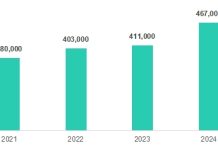Corporations and small businesses remain optimistic of their business prospects for the second and third quarters (Q2-Q3) of this year, according to the latest release of the survey-based RAM Business Confidence Index.

Consistent with the results of the previous survey completed in Q4 2016, the latest survey revealed that corporates continued to be the more optimistic of the two, recording a positive sentiment of 55.8, albeit marginally lower than 56.9 recorded in the previous survey.
Similarly, SMEs logged a positive sentiment of 52.1, compared to 53.2 for the previous period of Q1-Q2 2017. Both export-oriented corporates and SMEs registered higher overall index values than their domestic-oriented counterparts on the back of an expected pick-up in trade activities.
The manufacturing, agriculture/mining and transport/storage sectors recorded the highest index readings for the corporate sector at 56.8, largely driven by its optimism towards turnover and business expansion, while the construction sector was the least bullish at 53.9, weighed down by a negative profitability sentiment.
On the SME side, the business services sector was the most sanguine at 53.9 on the back of strong hiring and business expansion sentiment while the retail sector was the least positive at 50.9, due to a negative outlook on turnover and profitability.
All seven component indices for corporates registered values of above 50, suggesting broad confidence about business prospects over the next six months. They were most positive about business expansion and turnover, with values of 58.0 and 57.3, respectively.
Like corporates, profitability was the main concern for SMEs, more so given their relatively weaker bargaining power amid rising cost pressures in the supply chain. As such, this might lead SMEs to increase prices as a way to manage the profitability squeeze. The less optimistic profit outlook is also largely matched by a weaker turnover outlook, premised on lower demand for goods and services due to competitive pressures and economic luggishness.
For SMEs, the slower rate of collections from their clients had also crimped the pace of existing work progress, posing further downside risks to turnover expectations for the next six months. Nevertheless, the weaker sentiment in these two aspects was moderated by the more bullish outlook on hiring, capacity utilisation and business expansion, which recorded higher index values compared to the previous survey.
Forging ahead with business expansion activities despite weaker performance prospects may be partly attributed to the entrepreneurial and survivalist nature of SMEs, as they continue to strengthen the groundwork to improve their business prospects and competitiveness.














